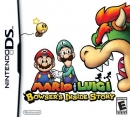I cannot count how many times I've seen Nintendo derided for having stellar first-party support, as though this is somehow a bad thing that "discourages competition" and "kills the market", as well as other such nonsense. And I'm getting sick of hearing it, as it is an argument which holds no economical sense. Let's look at the myths and why they aren't true.
Myth #1: First-party titles discourage competition!
Truth: Nothing could be further from the truth. First-party titles set a precedent, which determines what direction the competition will go. Without a precedent, the competition focuses instead on releasing titles which fill the desires of their fans. The end result of such efforts is almost always the same: fewer sales for each new title produced.
Myth #2: Strong first-party sales kill the market!
Truth: Again, false. Titles which sell well signal to third-party developers what kind of software to produce. Whether it's a first-party or third-party title which gets those strong sales is irrelevant. That it is first-party titles which are getting those sales reflects Nintendo's strategy of making unique hardware, then showing by example the basics of how to make games for it.
Myth #3: People only buy first-party titles!
Truth: Again, this is ridiculous, and sales numbers reflect it well. Titles which pleasantly surprise people sell well, regardless of who makes it. A good example is the Grand Theft Auto series, which is decidedly not a first party of any console maker. Yet it was the defining game series of the PS2 generation. Nintendo's success with first-party titles reflects them hitting the target market of the Wii well. Brand loyalty is not even a noteworthy factor in these high sales; if a game fits the bill of appealing to the target demographic, and is advertised to that demographic, it will sell no matter who made it.
Myth #4: Nintendo keeps making all the ideas before the third parties can!
Truth: Another ridiculous claim. The ways in which Nintendo has utilized both the Wii and DS are relatively basic. In the DS' case, there are numerous titles out not from Nintendo which use the system in ways that no Nintendo-made game does. In time, this will be true of the Wii, as well.
Myth #5: Nintendo's strong first-party position scares developers!
Truth: Maybe a few are scared of Nintendo. But most are not afraid of the Big N; they're afraid of failing to appeal to the target audience of the DS and Wii. Ironically, this is because they do not take advantage of what first-party titles do for them in setting the precedent for what people are interested in on the system.
Myth #6: Nintendo doesn't care about the 'real' gamers any more! All their first-party titles are 'casual' now!
Truth: Quite otherwise; they care a great deal about the self-proclaimed 'real' gamers. Which is why games like SSB:B, SMG, and LoZ:TP exist. But their goal is not simply to bring new people into gaming; they want to help existing gamers adapt to the Wii and DS as well. This is why games like Mario Kart Wii exist: to make a bridge between the old and the new.
Sky Render - Sanity is for the weak.

























































